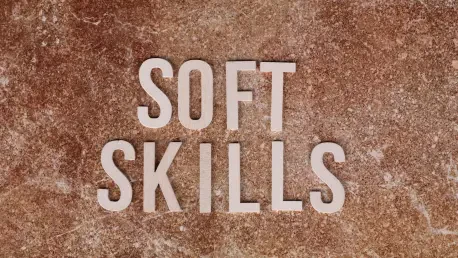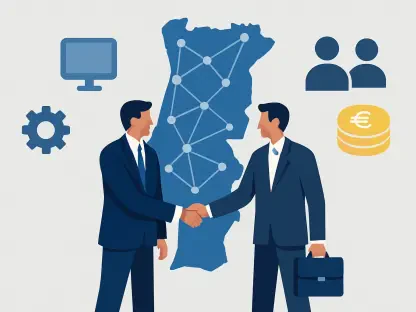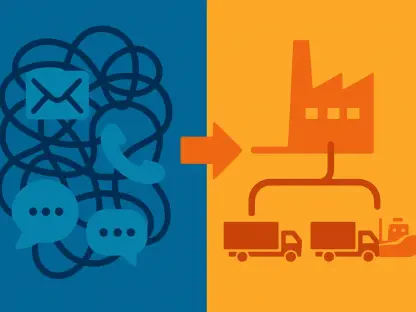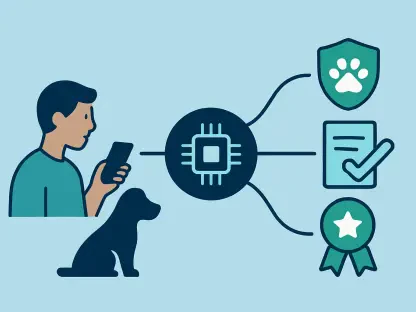What happens when an industry built on trust and personal connection finds its newest talent struggling to build those very bonds? In the fast-evolving world of insurance, a silent crisis is brewing—not in data or technology, but in the human touch that has long defined success. As automation reshapes workflows and hybrid models redefine collaboration, the gap in soft skills among emerging professionals is becoming a glaring issue, threatening the core of client relationships and career growth. This challenge demands attention, pulling back the curtain on a critical yet often overlooked aspect of the sector’s future.
Why Soft Skills Are the Hidden Gap in Insurance
The insurance industry has always thrived on relationships, where a handshake or a reassuring conversation could seal a deal. Yet, a troubling trend has emerged: many younger professionals entering the field lack the interpersonal finesse needed to navigate this trust-driven landscape. With technology handling complex calculations and risk assessments, the ability to communicate effectively and show empathy has become the unexpected differentiator.
This gap isn’t just a minor hiccup—it’s a structural concern. As hybrid work environments limit face-to-face interactions, the natural development of skills like active listening or nuanced dialogue is stunted. Industry insiders note that without these abilities, even the most technically adept individuals struggle to connect with clients or advance in their roles.
The stakes are high in a sector where trust is currency. A missed emotional cue during a client call or a poorly conveyed policy detail can erode confidence, costing business and credibility. This hidden gap in soft skills is no longer a side issue but a central challenge that could redefine the industry’s trajectory if left unaddressed.
The Shifting Dynamics of Insurance and the Rise of Soft Skills
Today’s insurance landscape looks vastly different from a decade ago, with artificial intelligence and automation taking over repetitive tasks. This technological shift has elevated the importance of human-centric skills, as machines cannot replicate the trust and emotional intelligence required to nurture client relationships. The ability to understand a client’s unspoken fears or tailor a solution with empathy now sets top performers apart.
Broader trends like hybrid work models and digital communication tools have further complicated this dynamic. Virtual meetings, while efficient, often strip away the subtleties of in-person interaction, making it harder to build rapport or read a room. This environment demands a heightened focus on interpersonal strengths to maintain the personal touch that insurance clients expect.
Industry leaders have begun to sound the alarm, recognizing that without these skills, career progression and client satisfaction suffer. A recent survey by a leading insurance association found that 68% of executives believe soft skills are as critical as technical expertise for future leadership roles. This growing consensus underscores a pivotal shift toward valuing the human element in a tech-driven world.
Unpacking the Soft Skills Deficit and Its Impact
Drilling down into the specific deficits, several key areas stand out among newer insurance professionals. Ineffective communication often tops the list, with many struggling to explain complex policies in a clear, relatable way during virtual interactions. This can lead to misunderstandings, as seen in cases where clients misinterpret coverage details due to unclear explanations over a video call.
Critical thinking in risk analysis also falls short for some, with a lack of curiosity hindering the ability to ask the right questions or identify significant threats. Additionally, building trust in a virtual world poses a unique challenge—without physical presence, establishing credibility becomes an uphill battle. These gaps manifest in tangible ways, such as losing a potential client due to a perceived lack of confidence or empathy.
Catherine Marincel, Senior Vice President at Berkshire Hathaway Specialty Insurance, highlights another layer to this issue. She points to the loss of “learning by osmosis” in hybrid settings, where informal lessons from observing colleagues in action are diminished. This absence of spontaneous mentorship creates a ripple effect, stunting the growth of essential interpersonal abilities and impacting business outcomes across the board.
Expert Perspectives and Real-World Stories
Voices from the field paint a vivid picture of this crisis, with seasoned experts like Catherine Marincel leading the charge. Speaking ahead of her session at the Women in Insurance Summit in New York, she identifies curiosity, judgment, and personal engagement as vital skills that remain underdeveloped in today’s workforce. Her concern is clear: without these traits, the next generation risks falling behind in a relationship-driven industry.
Real experiences echo her insights, revealing the struggles and successes tied to soft skills. A young underwriter recently shared frustration over failing to connect with a broker during a digital meeting, unable to pick up on subtle cues that might have signaled hesitation. In contrast, a veteran agent attributes decades of success to mastering the art of conversation, often turning casual chats into long-term partnerships.
These stories, paired with Marincel’s observations, add depth to the discussion. They illustrate not just the challenges but also the potential for growth when interpersonal strengths are prioritized. Her upcoming talk at the summit aims to tackle these issues head-on, offering a platform to explore solutions and inspire change across the sector.
Strategies to Bridge the Soft Skills Divide
Addressing this crisis requires action on both individual and organizational levels, with practical steps to cultivate these essential abilities. For professionals, Marincel suggests seeking out client-facing opportunities to hone communication and relationship-building skills. Attending networking events and posing insightful questions can also demonstrate curiosity while forging valuable connections.
Organizations, meanwhile, must adapt to the hybrid reality with innovative approaches. Scheduling overlapping in-office days can foster team collaboration and recreate informal learning moments, while leveraging video calls for personal interaction helps maintain a human connection. Mentorship programs stand out as a powerful tool, pairing seasoned employees with newer talent to share unspoken lessons and build confidence.
A balanced framework emerges from these strategies, blending personal initiative with systemic support. Encouraging a culture where asking for feedback is normalized can further accelerate growth. By investing in these efforts, both individuals and companies can turn the soft skills deficit into an opportunity for transformation, ensuring the industry remains resilient amid rapid change.
Reflecting on a Path Forward
Looking back, the journey through this soft skills crisis revealed a profound truth: the heart of insurance lies in its people, not just its policies. Discussions with experts and stories from the field underscored how deeply interpersonal abilities shape outcomes, even as technology advances. The challenges of hybrid work and digital barriers stand as formidable obstacles, yet they also spark a renewed focus on human connection.
Actionable steps emerged from this exploration, pointing toward mentorship and intentional collaboration as key solutions. Industry events like the Women in Insurance Summit provide a vital space to refine these ideas, fostering dialogue that could reshape training and development. The path ahead demands a commitment to nurturing emotional intelligence alongside technical prowess.
Ultimately, the response to this crisis hinges on a shared resolve to prioritize soft skills as a cornerstone of success. Future considerations include expanding access to real-world experiences for younger professionals and embedding interpersonal training into core curricula. These efforts promise to strengthen the industry’s foundation, ensuring that trust and empathy remain at the forefront of every interaction.









